Tehran Stock Exchange Head Resigns After Crypto Mining Machines Uncovered
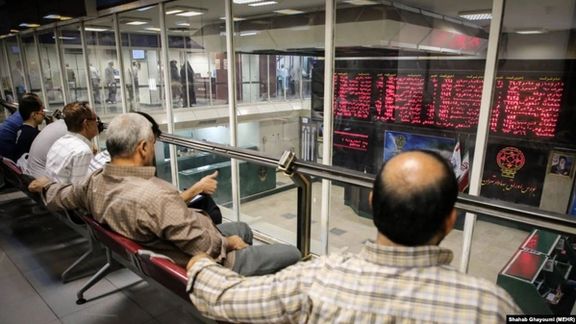
The director of Tehran’s stock exchange Wednesday announced his resignation after cryptocurrency mining machines were uncovered at the offices of the organization.

The director of Tehran’s stock exchange Wednesday announced his resignation after cryptocurrency mining machines were uncovered at the offices of the organization.
After the news of the scandal broke on local media, Ali Sahraee told the ISNA news website “To offer an opportunity for more investigations about cryptocurrency mining at the stock exchange and to help the stability of the markets, I offered my resignation to the board of directors, which accepted it.”
Sahraee’s announcement contradicts news from the government’s official news website, IRNA, that said he was fired.
Around seven percent of the world’s cryptocurrencies are mined in Iran, most of it hidden from public view and illegally. The practice which requires thousands pf computers using large quantities of electricity has become controversial. Some Chinese entities are also engaged in the practice due to extremely cheap, subsidized electricity in Iran.
The stock exchange confirmed the operation of crypto machines on Wednesday and said there has not been full financial reporting, although the operation was meant to be for the stock exchange and not private. The board of directors confirmed that a number of machines were installed last year “for research purposes”.
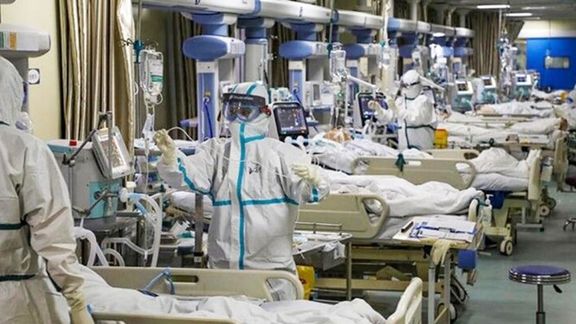
Iran’s health ministry said Tuesday that use of the China’s Sinopharm Covid-19 vaccine would continue for pregnant women and ruled out the United States-made Pfizer.
A ministry statement said the issue had been discussed at the cross-government National Vaccination Committee. Health minister Bahram Eynollahi had said on September 23 that some US-made vaccines would be imported for vaccinating expectant mothers but would not be generally available.
Data over vaccines in pregnancy has been limited. While a major study earlier in the year deemed the US-made Pfizer and Moderna safe for expectant mothers, the World Health Organization has also recommended they receive Sinopharm.
A few days ago, Fars news agency, which is affiliated to the Revolutionary Guards (IRGC), launched an online campaign against importing Pfizer vaccines. On Tuesday Fars quoted Professor Ali Karami, a controversial biotechnology professor at the IRGC Baqiyatallah University of Medical Sciences, saying the Pfizer vaccine contained a "group of genes" that could affect the recipient’s DNA. "Professor Karami's statement is a warning to take immediate action and not to put pregnant mothers and the future generation at risk," Fars noted.
Karami who has advocated other conspiracy theories in the past and ardently opposes the use of US-made vaccines claims that the US has created a vaccine to reduce religious fundamentalism with which the Pentagon could vaccinate large populations in the Middle East. "The virus in this vaccine purportedly has been tested and shown to reduce fundamentalism and religiosity in all who are infected by damaging what is called the GOD gene," Karami said at a conference in 2016.
Iran has now fully vaccinated 17 percent of the population, according to figures from John Hopkins University. Daily Covid deaths peaked at around 700 in August during a fifth wave of the pandemic but in recent weeks have fallen to under 300.
According to the latest figures released by the health ministry, 37.7 million of 84 million Iranians have received one dose and 16 million both doses of the Covid vaccine, a total of 53.8 million.
Many hardliner political, military and media figures in Iran welcomed Supreme Leader Ali Khamenei’s January 8 order to ban importing the US-made Pfizer and Moderna, and British-made AstraZeneca, vaccines based on conspiracy theories that the West can contaminate the vaccines to harm Iranians.
While many hardliners supported Khamenei’s decision, as they usually do in all matters, Pfizer, Moderna, and AstraZeneca were at the time the only Covid vaccines provided through the World Health Organization’s Covax facility.
On August 16, the head of Iran's Food and Drug Administration (FDA), Mohammad-Reza Shanehsaz, said a permit had been issued to import Pfizer and Moderna vaccines. Shanesaz stressed that Khamenei's concerns were being addressed and that while any source should be reliable "a vaccine's name" was not sufficient reason to stop its import.
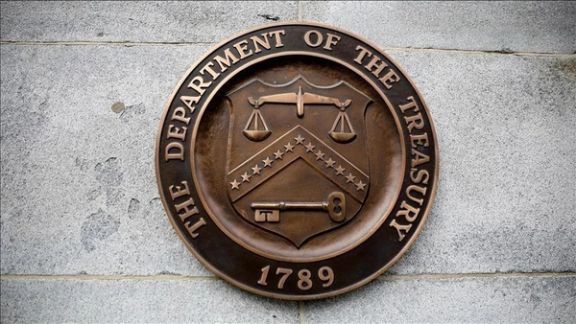
The US Treasury Department Wednesday announced sanctions on a Hezbollah financial network based in the Arabian Peninsula, with support from Qatar.
In the release, the US government noted that it designated these individuals and entities in “coordinated actions” with Qatar.
Among the designations were Ali Reda Hassan al-Banai (Ali al-Banai), Ali Reda al-Qassabi Lari, and Abd al-Muayyid al-Bani. They were all sanctioned as Specially Designated Global Terrorists under Executive Order 13224 for having materially assisted, sponsored, or provided financial, material, or technological support for, or goods or services to or in support of, Hezbollah. The US government sanctioned the Iran-backed Party of God as a Foreign Terrorist Organization in 1997 and as a Specially Designated Global Terrorist in 2001.
The US Treasury Department revealed that Ali al-Banai and Lari “have secretly sent tens of millions of dollars” to Hezbollah “through the formal financial system and cash couriers.” It documented how both men met with Hezbollah officials during their trips to Lebanon and Iran. One particularly noteworthy finding by the US Treasury Department was that Ali al-Banai started contributing to Hezbollah through a Kuwait-based branch of the Martyrs Foundation, which is an Iranian parastatal organization that Tehran uses to finance its proxies and partners throughout the Middle East.
Additional targets included Abd al-Rahman Abd al-Nabi Shams, Yahya Muhammad al-Abd-al-Muhsin, Majidi Fa’iz al-Ustadz, and Sulaiman al-Banai, who were also sanctioned under Executive Order 13224 for providing services to Ali al-Banai. Likewise, Qatar-based AlDar Properties was sanctioned for being owned, controlled, or directed by, directly or indirectly, Sulaiman al-Banai.
Today’s sanctions designations are significant for two reasons. The first concerns the recent Iranian shipments of fuel, arranged by Hezbollah, to Lebanon. The fuel has been allowed to transit through Syria without incident, despite likely sanctions violations. Thus, the US government is signaling its readiness to crack down on Hezbollah’s broader financial networks even while appearing to turn a blind eye to the Iranian fuel being trucked across Syria into Lebanon. Indeed, this is the second time in September alone the US government has levied sanctions targeting Hezbollah. Such timing is not a coincidence given the broader fuel exchange underway with Tehran.
Second, Qatar’s role here is important, given charges that it is a permissive environment for terrorist financing. In recent months, the Israeli government reportedly provided intelligence to Washington that Doha was funding Iran’s Islamic Revolutionary Guard Corps (IRGC). Qatar, a longtime partner of the United States, thus may have taken a parallel action against this Hezbollah network to buy goodwill in the United States in thwarting this illicit activity.

Iran took up half of a BBC Hardtalk interview broadcast Tuesday with Rafael Mariano Grossi, head of the International Atomic Energy Agency (IAEA).
Pressed by interviewer Zeinab Badawi, Grossi defended the value of on-going inspections of Iran’s nuclear sites despite criticism from the IAEA, the United States, and Europe of Tehran limiting agency access, particularly to the Karaj workshop where centrifuges – devices for enriching uranium – are made.
Grossi said he would soon return to Tehran for further discussions, where he hoped to “get to know” and “sit down with” either new president Ebrahim Raisi (Raeesi) or new foreign minister Hossein Amir-Abdollahian.
Despite disagreement over Karaj, Grossi said the agency remained an essential international presence both in “regular” monitoring under the Nuclear Non-Proliferation Treaty (NPT) and under a temporary arrangement that Grossi agreed in February after Tehran decided to scale back the agency’s access.
The IAEA, he said, still had “indispensable monitoring and verification capabilities that would allow us to store and to keep very important information in terms of uranium enrichment…[and] the production of centrifuges.”
While Iran has allowed the IAEA to service equipment in other sites, under the February arrangement renewed on September 12, it barred this in Karaj on September 16, due Tehran says to continuing security investigations at the facility after a drone attack in June.
Grossi stressed to Hardtalk the link between continuing agency inspections and efforts in Vienna talks to revive Iran’s 2015 nuclear agreement with world powers, the JCPOA (Joint Comprehensive Plan of Action). “We are the guarantors…of whatever is agreed,” he noted.
IAEA monitoring offered, he said “a full picture as can be obtained under the circumstances” with “no interruption.” With a “vast” inspection effort, Grossi said, “we are present at all the facilities that Iran has, we have inspections every day of the year.”
In 2019, the year after former US president Donald Trump left the JCPOA and imposed ‘maximum pressure’ sanctions, Iran began expanding its nuclear program, including enriching uranium to 60 percent, far above the 3.67 percent allowed under the JCPOA, and this year scaled back IAEA monitoring to that required under the NPT and that agreed in February.
The last detail
“What makes the present moment so important…is that if we were to be limited in the scope, in the access, that we have to Iran, then we would start losing ground and start losing the capability to know exactly what is happening to the last detail,” Grossi told Hardtalk. “[We now know] by the gram how much uranium enrichment is taking place.”
Asked why he apparently failed to convince some regional leaders over his efforts – the BBC’s Badawi cited Israeli prime minister Naftali Bennett saying Iran was crossing ‘red lines’ – Grossi said there was a “political” view that “Iran having capabilities in the nuclear area is a danger in itself.”
This was not however the basis of the JCPOA, Grossi noted, under which signatories agreed to Iran conducting a nuclear program within prescribed limits.
Grossi insisted he would continue to call on Iran to abide by the September 12 agreement, including servicing equipment at Karaj. He said Iran had agreed that he would return “very soon” to Tehran to continue discussions.
Noting that the new Raisi administration had “firm views” on the nuclear program, Grossi concluded: “We need to get to know each other. I need to sit down with them. I want to listen to them, and I hope they would also listen to me.”
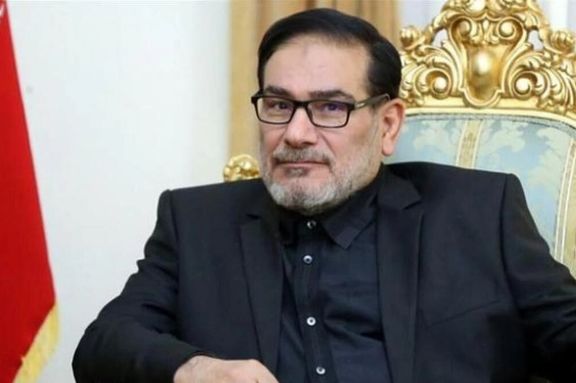
An Iranian news website has denied that national security council secretary Ali Shamkhani has met with a senior Saudi official.
Iran’s Nour News close to the national security council has denied recent reports that Ali Shamkhani, secretary of the council, has met with a top Saudi official.
Quoting “an informed source” at Iran’s Supreme National Security Council, Nour News said, “There have been no meetings or contacts between Ali Shamkhani, Secretary of the Security Council, and Saudi officials.”
The denial issued on Wednesday was apparently a response to reports on social media that said Shamkhani had met with Adel Jubair, advisor to Saudi Arabia’s foreign ministry. Nour News added that there are no plans for a meeting.
Iranian and Saudi officials had a series of meeting in Baghdad in April with Iraqi mediation to reduce their long-running tensions. At the time, it was rumored that Shamkhani was the lead negotiator meeting with Saudis.
In the past two days, reports by news agencies have indicated that a new meeting between Iranian and Saudi ministers has taken place in Baghdad, but did not offer any details.
Saudi Arabia cut diplomatic relations with Iran in early 2016, after mobs attacked and ransacked its diplomatic missions in Iran.
A regional summit convened in Baghdad in September included the foreign ministers of Iran and Saudi Arabia but no bilateral meetings between the sides was reported.
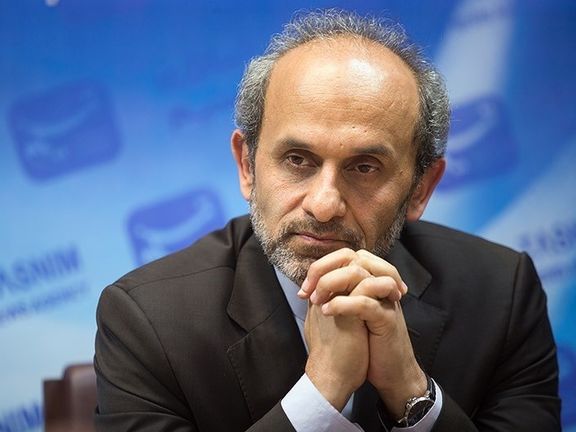
Iran's Supreme Leader Ali Khamenei appointed a new chief at the state TV, which suffers from loss of audience due to political and cultural censorship.
The Islamic Republic's Supreme Leader Ali Khamenei appointed Payman Jebelli, as the new chief of Iran's national broadcaster, the Islamic Republic Broadcasting Organization (IRIB) on Wednesday, putting an end to months of speculation about IRIB's top management.
Nearly in all assessment since March, Jebelli was the most likely candidate for the post. News sources including Noor News, affiliated with the Iranian Supreme Council of National Security (SCNS) had named Jebelli, a seasoned news director at the IRIB as the most likely person to replace former director Abdolali Aliaskari whose tenure ended in April.
The announcement about Jebelli's appointment was reportedly delayed because of the presidential election, but it comes at a tough time for the broadcaster that is losing viewership.
Jebelli, born in 1966, a former Iranian Ambassador to Tunisia, has been the director of Iran's rolling news channel in English Press TV and the deputy IRIB Chief for the national broadcaster's external services that are closely linked to the IRGC Qods (Quds) Force. As external services director since 2016 has been overseeing broadcasts in several languages to the Middle East, Europe, North America and Latin America.
His earlier position as news director required close links to Khamenei's office where all decisions including coverage policy and appointment of the organization's top managers are made.
Recently, Iranian conservative journalists revealed that Jebelli, a long-time political analyst on the IRIB was "the informed source" that Press TV got its often controversial news about nuclear negotiations with the P5+1 from. Jebelli, of course, is no stranger to Iran's nuclear issues, as he was the Iranian chief negotiator Saeed Jalili's deputy for news dissemination a decade ago.
This position gave him a reputation as a hardliner, while his decisions at the IRIB have often been made based on organizational needs rather than political affiliation. Otherwise, based on his analysis, he has been an “open-minded conservative who believed in openness and transparency.” This characteristic is most evident in one of the programs he has launched on the state television's Channel 2. The program, Special Interview, is usually broadcast after the evening news and depending on who is conducting the interview, most of the time it challenges Iranian politicians by asking tough questions.
Khamenei praised Jebelli for his religious and revolutionary devotion, as well as his expertise and long experience at the IRIB and his thorough knowledge of the national broadcasters' responsibilities. Part of his mandate, as spelled out by Khamenei, includes: "strengthening Iranians' national identity, promoting the Islamic-Iranian lifestyle, advocating national solidarity and raising the bar for qualitative standards in programming."
This is a mandate difficult to accomplish with the extent of censorship that prevails in IRIB programming. Last week, a set of new censorship rules dictated that in no IRIB program men should pour tea for women, and no two men can be seen together in a home, lest it ignites ideas in people’s heads. Men and women alone is out of question.
Meanwhile, Jebelli is starting his mandate as IRIB chief while an opinion poll conducted by the state-run ISPA polling agency said the viewership of IRIB news has been constantly declining during the past five years, and that even between March and September 2021, its popularity dropped from 57.7 percent to 42.1 percent.
Furthermore, the poll revealed that most of those who turn to the IRIB for news and current affairs are less educated Iranians of 50 years of age or older, as disillusioned young Iranians turn to social media for getting the news.